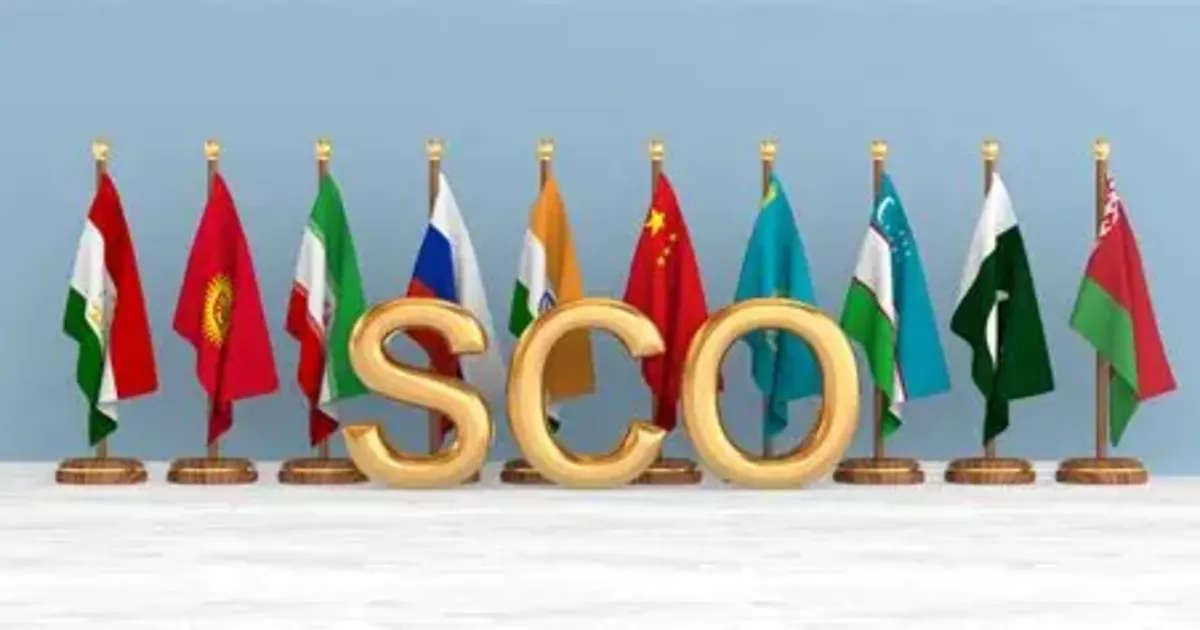Since its foundation in 2001 as a security alliance in the region, the Shanghai Cooperation Organization (SCO) has developed into a comprehensive platform in both political and economic senses, comprising almost half of the world's population. Under the circumstances of international insecurity, growing trade tensions, changing alliances, and rivalry between the U.S and China, to use the meeting, China fine-tuned to deliver much more than a simple Eurasian security club aiming to shape world governing bodies because of the SCO Summit in Tianjin on August 31-September 1, designated as the SCO Summit 2025. The Chinese President, Xi Jinping, has welcomed leaders, including the Russian President, Vladimir Putin, the Pakistani Prime Minister, Shahbaz Sharif, and the Indian Prime Minister, Narendra Modi, governments of Central Asian countries. Further, SCO plus became the format of to attract the observers and partners, and it shows the will of Beijing's desire to make the SCO a representation of the emerging world.
The essence of the Tianjin summit is the sweeping statements, which stressed the spirit of the effort to make the SCO more coordinated and efficient. President Xi Jinping stated new offers, responsibilities, raw monetary systems which would expose the bloc more dependable and far ranging. One of the most glaring results was an option to establish the SCO development bank. Through the incorporation of financial instruments that are based on the categories of anchoring cooperation and investment of long-term influence, the initiative not only speaks to the way in which the Chinese government behaves, but is backed by the Chinese government to keep up to 2 billion RMB in grants and up to 10 billion RMB in concessional funding.
New platforms of energy, green industry, digital economy, technological innovation, higher education, and vocational training were another announcement. These segments represent the twin demands of Beijing in two areas: one concerned with modernization/sustainable development, the other with giving member states viable options of engagement beyond the traditional aspects of security. Other important aspects of this summit were the launching of the Global Governance Initiative (GGI) during the session, SCO Plus. The GGI is proposed instead of the Western-dominated organizations and creates a multipolar order built on fairness, inclusiveness, and common ground. The launch of this program with on-board non-member observers and UN representatives began to represent the Chinese ambition further spreading the SCO to the rest of the World, South-East other the Eurasian continent.
The roadmap to a new international order was launched at the Shanghai Cooperation Organisation (SCO) 2025 summit. They went as far as multi-polarity, whose roots lay in what they call true multilateralism. China and Russia expressed their opposition as rejection of hegemony and power politics, the world organization officially as the venue of security, stability, and cooperation building within the global area 'Eurasia', SEC starts to talk to the Global South.
Along with the Eurasian heartland, the 2025 SCO summit has vigorously looked at gaining control over the greater part of the Global South, which will stand the structure as a platform that gives voice to the unrepresented states in the eyes of Western-led institutions. The desire was underlined by the launch of a new format known as the SCO Plus that included all UN officials and the representatives of Africa, the Middle East, and Latin America. Looking back at the widening of the participation involved, Beijing hoped to turn up the role of the regional bloc, and wanted to vividly display to the rest of the world that this was a place of participatory discourse.
The Chinese message was attractive to the developing countries. Beijing also included such progressive multilateralism on the drivers of the SCO as, for example, the proposed SCO Development Bank and cooperation forums with energy, green technology, and education offerings. This intervention was also a part of the general policy of Xi Jinping's soft power. With the SCO to be the support system with such an apparatus of the Belt and Road Initiative (BRI), BRICS, and China is weaving around the institutions, allowing them to exploit their influence in Asia, Africa, and other regions through its influence. Despite the grand promises, there is no track record of the implementation of the organization to date, and the partners would thus be assured whether this organization is effective or not.
The Tianjin summit timing was not a coincidence. The event coincided with the preparations of a gigantic military parade held in China as the 80th anniversary of World War II was announced, which served as a reminder of the contribution of the nation to winning over fascism and its right to moral power, which guaranteed the country to establish the new order. By linking the SCO messages to this commemoration, Beijing took the place of the heir of the tradition of anti-hegemony and collective security. Perhaps the menace of hegemony and 'unilateralism' were repeatedly invoked in Xi Jinping's speeches as veiled criticisms of U.S. foreign policy. Based on historical memory and present geopolitical realities, Beijing had attempted to introduce the SCO not as a diplomatic club, but under the banner of a movement of which it was an integral part, finding much in common with the movements of global resistance to domination. To Russia, too, this was representative. Putin played on the common history of the victory in WW2 to bolster a relationship between Moscow and Beijing, as well as push back efforts by Westerners to isolate Russia regarding Ukraine.




